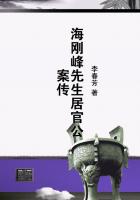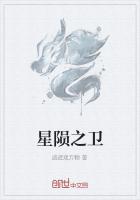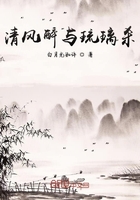Terence murmured something unintelligible. Mr. Flushing, however, had recovered his urbanity. He was smoking a cigarette, and he now answered his wife.
"You must always remember, Alice," he said, "that your upbringing was very unnatural--unusual, I should say. They had no mother," he explained, dropping something of the formality of his tone;
"and a father--he was a very delightful man, I've no doubt, but he cared only for racehorses and Greek statues. Tell them about the bath, Alice."
"In the stable-yard," said Mrs. Flushing. "Covered with ice in winter.
We had to get in; if we didn't, we were whipped. The strong ones lived--the others died. What you call survival of the fittest-- a most excellent plan, I daresay, if you've thirteen children!"
"And all this going on in the heart of England, in the nineteenth century!" Mr. Flushing exclaimed, turning to Helen.
"I'd treat my children just the same if I had any," said Mrs. Flushing.
Every word sounded quite distinctly in Terence's ears; but what were they saying, and who were they talking to, and who were they, these fantastic people, detached somewhere high up in the air?
Now that they had drunk their tea, they rose and leant over the bow of the boat. The sun was going down, and the water was dark and crimson.
The river had widened again, and they were passing a little island set like a dark wedge in the middle of the stream. Two great white birds with red lights on them stood there on stilt-like legs, and the beach of the island was unmarked, save by the skeleton print of birds' feet. The branches of the trees on the bank looked more twisted and angular than ever, and the green of the leaves was lurid and splashed with gold. Then Hirst began to talk, leaning over the bow.
"It makes one awfully queer, don't you find?" he complained.
"These trees get on one's nerves--it's all so crazy.
God's undoubtedly mad. What sane person could have conceived a wilderness like this, and peopled it with apes and alligators?
I should go mad if I lived here--raving mad."
Terence attempted to answer him, but Mrs. Ambrose replied instead.
She bade him look at the way things massed themselves--look at the amazing colours, look at the shapes of the trees. She seemed to be protecting Terence from the approach of the others.
"Yes," said Mr. Flushing. "And in my opinion," he continued, "the absence of population to which Hirst objects is precisely the significant touch. You must admit, Hirst, that a little Italian town even would vulgarise the whole scene, would detract from the vastness--the sense of elemental grandeur." He swept his hands towards the forest, and paused for a moment, looking at the great green mass, which was now falling silent. "I own it makes us seem pretty small--us, not them." He nodded his head at a sailor who leant over the side spitting into the river. "And that, I think, is what my wife feels, the essential superiority of the peasant--"
Under cover of Mr. Flushing's words, which continued now gently reasoning with St. John and persuading him, Terence drew Rachel to the side, pointing ostensibly to a great gnarled tree-trunk which had fallen and lay half in the water. He wished, at any rate, to be near her, but he found that he could say nothing. They could hear Mr. Flushing flowing on, now about his wife, now about art, now about the future of the country, little meaningless words floating high in air. As it was becoming cold he began to pace the deck with Hirst. Fragments of their talk came out distinctly as they passed--art, emotion, truth, reality.
"Is it true, or is it a dream?" Rachel murmured, when they had passed.
"It's true, it's true," he replied.
But the breeze freshened, and there was a general desire for movement.
When the party rearranged themselves under cover of rugs and cloaks, Terence and Rachel were at opposite ends of the circle, and could not speak to each other. But as the dark descended, the words of the others seemed to curl up and vanish as the ashes of burnt paper, and left them sitting perfectly silent at the bottom of the world.
Occasional starts of exquisite joy ran through them, and then they were peaceful again.















